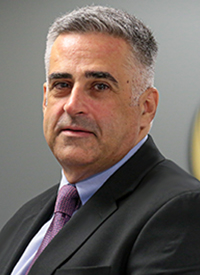
Roger Azevedo, Ph.D.
Pegasus Professor
Director, SMART Lab
Lab:
Office:
Partnership 2: 332
Contact:
Roger.Azevedo@ucf.edu
Dr. Azevedo is a Pegasus Professor in the School of Modeling Simulation and Training at the University of Central Florida. He is also an affiliated faculty in the Departments of Computer Science and Internal Medicine at the University of Central Florida and the lead scientist for the Learning Sciences Faculty Cluster Initiative. He received his PhD in Educational Psychology from McGill University and completed his postdoctoral training in Cognitive Psychology at Carnegie Mellon University. His main research area includes examining the role of cognitive, metacognitive, affective, and motivational self-regulatory processes during learning with advanced learning technologies (e.g., intelligent tutoring systems, hypermedia, multimedia, simulations, serious games, immersive virtual learning environments). More specifically, his overarching research goal is to understand the complex interactions between humans and intelligent learning systems by using interdisciplinary methods to measure cognitive, metacognitive, emotional, motivational, and social processes and their impact on learning, performance, and transfer. To accomplish this goal, he conducts laboratory, classroom, and in-situ (e.g., medical simulator) studies and collects multi-channel data to develop models of human-computer interaction; examines the nature of temporally unfolding self- and other-regulatory processes (e.g., human-human and human-artificial agents); and designs intelligent learning and training systems to detect, track, model, and foster learners, teachers, and trainers’ self-regulatory processes.
He has published over 300 peer-reviewed papers, chapters, and refereed conference proceedings in the areas of educational, learning, cognitive, educational, and computational sciences. He was the former editor of the Metacognition and Learning journal and serves on the editorial board of several top-tiered learning and cognitive sciences journals (e.g., Applied Cognitive Psychology, International Journal of AI in Education, Educational Psychology Review, European Journal of Psychological Assessment). His research is funded by the National Science Foundation (NSF), Institute of Education Sciences (IES), National Institutes of Health (NIH), and the Social Sciences and the Humanities Research Council of Canada (SSHRC), Natural and Sciences and Engineering Council of Canada (NSERC), Canada Research Chairs (CRC), Canadian Foundation for Innovation (CFI), European Association for Research on Learning and Instruction (EARLI) and the Jacobs Foundation. He is a fellow of the American Psychological Association and the recipient of the prestigious Early Faculty Career Award from the National Science Foundation.
Education
Appointments
Courses Taught
Highlights
Research Interests:
Advanced Learning and Training Technologies
Human Digital Twins
Human-Machine AI Collaboration
Intelligent Environments for Education and Training Across Humans and Contexts
Metacognition and Self-Regulated Learning
Multimodal Process Data in Human-Machine Interactions
Areas of Expertise:
Cognition
Learning
Metacognition
Multimodal Data
Performance
Problem Solving
Self-Regulated Learning
Application Areas:
Academics
Automotive
Defense
Education
Healthcare
